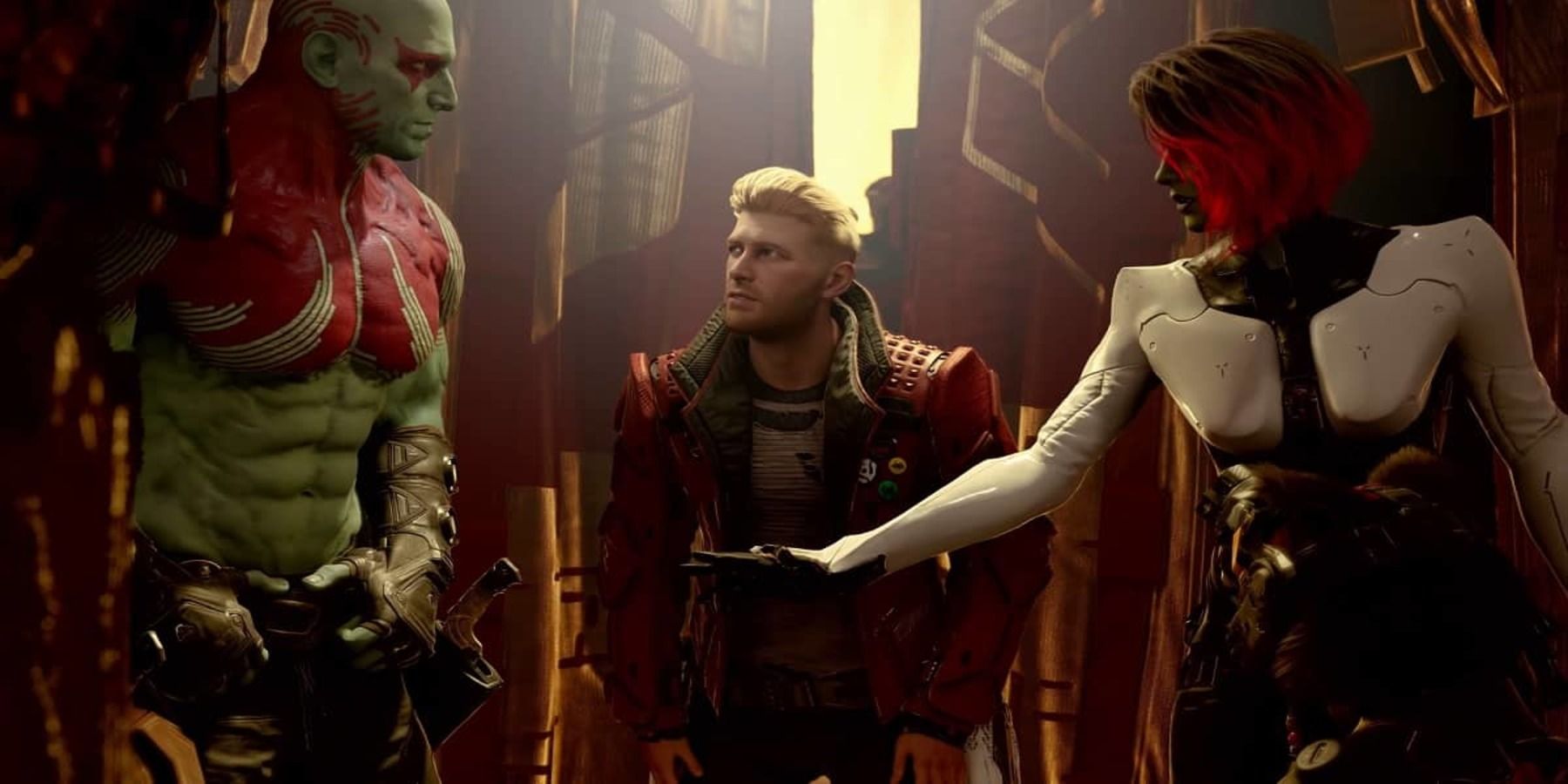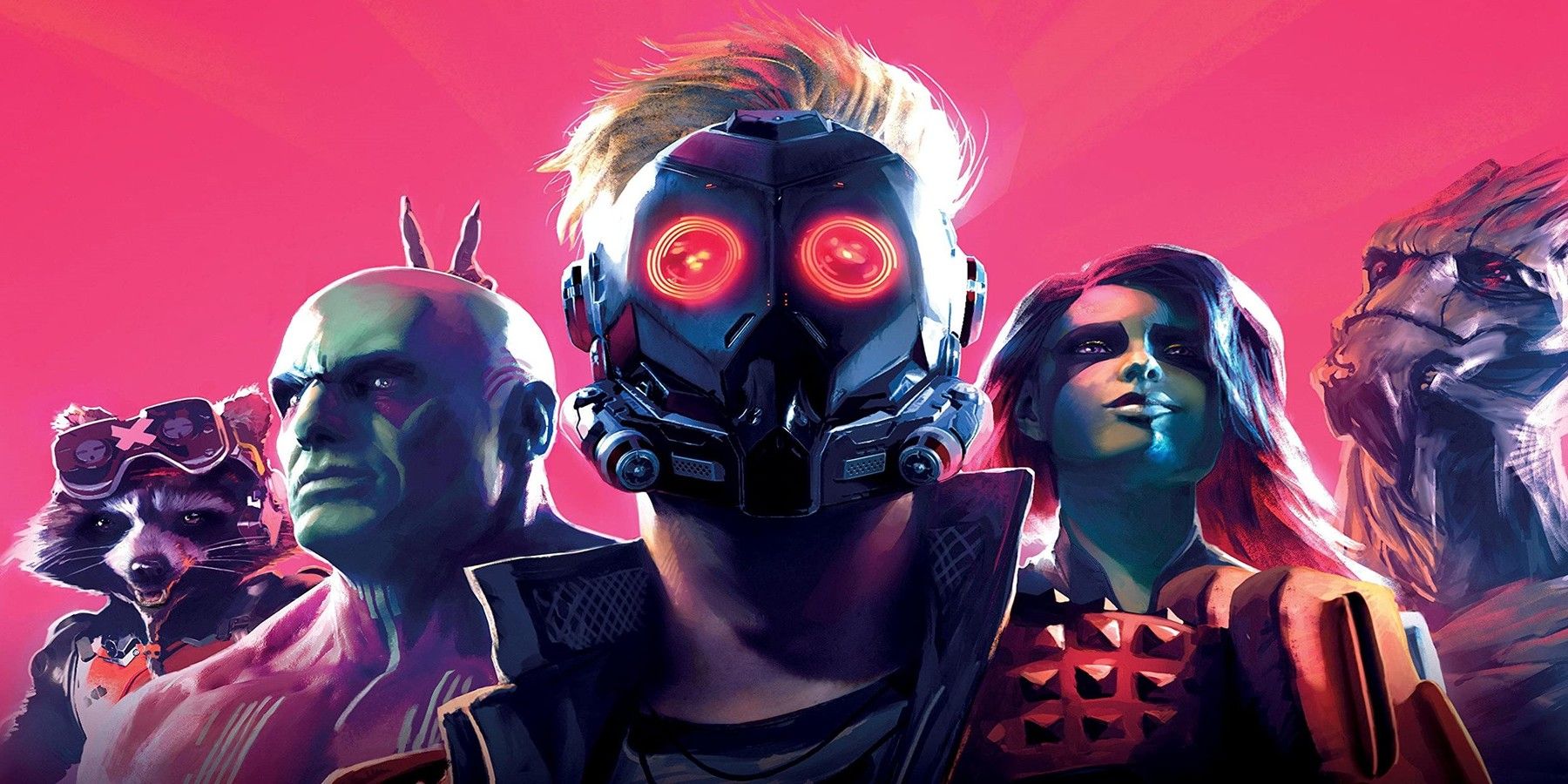Marvel’s Guardians of the Galaxy was arguably the biggest surprise of the year. The game was not marketed as heavily as one would expect, possibly due to the controversial Marvel’s Avengers. With many worried that Marvel’s Guardians of the Galaxy would turn out to be just as flawed, hype was not nearly high as it usually is for a AAA Marvel game. Fortunately, the Eidos Montreal and Square Enix title has received a fair bit of praise from fans and critics alike.
That positive response has seen Marvel’s Guardians of the Galaxy getting some well-deserved nominations at The Game Awards. The game has received nods for Best Narrative, Best Action/Adventure Game, Best Soundtrack, and Innovation in Accessibility. However, there is one area where it was shockingly omitted: Best Performance. With so much great acting to see in Marvel’s Guardians of the Galaxy, this snub is truly strange.
Marvel’s Guardians of the Galaxy’s Strong Performances
Players do not need to look very far for strong performances in Marvel’s Guardians of the Galaxy. For starters, Star-Lord actor Jon McLaren does a terrific job of making his version of Peter Quill stand out from the one seen in the MCU. His best scene comes at the end of the game when Quill must help Nikki escape The Promise, as McLaren’s soft-spoken approach to this sequence stands out from the louder scenes that came before. The scene is genuinely emotional, with Quill’s advice feeling more heartfelt due to the acting.
While Gamora may be the weak link in terms of her impact on the main narrative, she is played well by Kimberly-Sue Murray. Murray nails the straight-faced nature of her character, with Gamora coming off as the intimidating force that players would expect. However, when the Deadliest Woman in the Galaxy gets more emotional, Murray does a fine job there as well - with Gamora’s confession about Nebula elevated due to the strong performance.
Plenty has been said about how great Eidos Montreal’s take on Drax is, as the developer succeeded at making him more than a punching bag. While his inability to grasp sarcasm is still funny, and his bluntness makes for some hilarious dialogue, the serious scenes where players get insight into how much he has lost are easily his best moments. It is hard to imagine the conversation on Knowhere or Drax saying goodbye to his family working so well without Jason Cavalier’s performance.
Perhaps the biggest snub of all comes in the form of the rebellious Rocket, who was played to perfection by Alex Weiner. Not only is the character at the heart of the game’s story, as players see him dealing with Trauma and lashing out at Quill, but all his dialogue feels like it came straight from the MCU. While Weiner does not do a full impression of Bradley Cooper’s Rocket, he manages to pull off a very similar accent, with players able to get adjusted to Rocket’s in-game voice instantly as a result. Every bit of troublemaking works better because of this performance, with Rocket’s banter and aggression feeling natural.
With Marvel’s Guardians of the Galaxy’s Mantis and Adam Warlock also being well-acted, there are many strong performances throughout the game. All the main Guardians would have been worthy of a nomination, so it is confusing to see the game not getting any love in this category. While it is fair to see Deathloop get two nominations due to the stellar performances for Colt and Julianna, it is odd to see a game get nominated twice in the same category while another deserving title was left out entirely. While a case could be made for any of the main Guardians to be acknowledged for Best Performance, one of them deserved to be nominated, even if it meant extending the list to six nominees.
Marvel’s Guardians of the Galaxy is available now on PC, PS4, PS5, Switch, Xbox One, and Xbox Series X.


